The Atlantic Immigration Pilot Program is a way for employers in the Atlantic Canadian provinces of Nova Scotia, New Brunswick, Newfoundland and Labrador and Price Edward Island to hire skilled, foreign employees, if they have not been able to fill their positions locally. Foreign graduates who plan on settling in Canada after they graduate can also apply through this pilot.
This program is driven by employers to hire and retain global talent. For graduates, to be able to immigrate, they should be a recent graduate from a publicly funded institute in Canada. Worker must receive a job offer from designated employers in one of the four provinces.
Three pathways are available for applicants. A particular candidate can only apply through a single mode. The eligibility criteria for each stream is given below.
The graduate pathway is for eligible graduates who want to work in Canada after their graduation.The eligibility criteria for this stream are as follows:
The applicant must have a job offer according to the Offer of Employment to a Foreign National (IMM5650) from an approved employer in the Atlantic Provinces.
The job offered must be full-time and non-seasonal in nature and of skill level 0,A,B or C as per the National Occupational Qualification (NOC).
The job offer should be for a period of one year or more.
The candidate must appear for and pass one of the approved language tests for proving that he/she can communicate effectively. The approved language tests are as under:
- English
- Canadian English Language Proficiency Index Program (CELPIP): The test taken should be the General test and not the General-LS test.
- International English Language Testing System (IELTS): The test should be taken in the General training format and not the Academic format.
- French
- Test d’évaluation de français (TEF): The test results should prove the candidates written and oral communication skills.
- Test de connaissance du français (TCF): The test results should prove the candidates written and oral communication skills.
The test results have to be submitted with the application. The minimum level for applicants to qualify is CLB 4.
-
- The applicant should have lived in Canada for at-least 16 months in the last 2 years before getting their credential.
- The credential should be one of a minimum 2-year long, full-time degree, diploma, certificate, trade or apprenticeship credential, from a recognised publicly funded institution in Atlantic provinces of Canada.
- Graduation in the last 24 months before the application for permanent residence is necessary.
- The applicant should also have possessed a visa for study, work or training in Canada throughout their duration of stay before the application.
The credential acquired must not be such that it has English or French as second language courses, or distance learning for more than half the course duration.
The applicant must have enough funds to support his/her family and himself/ herself. If applicant already has a valid work permit and is living and working in Canada proof of funds is not required. The amount of funds that he/she should have depend on the family size as below:
| Number of Family Members (including those you support that aren’t immigrating with you) |
Funds Required (in Canadian dollars) |
| 1 | $3,240 |
| 2 | $4,034 |
| 3 | $4,959 |
| 4 | $6,021 |
| 5 | $6,829 |
| 6 | $7,702 |
| 7 or more | $8,575 |
This stream is applicable for eligible foreign workers who have a job offer from an approved employer in Atlantic provinces of Canada.The eligibility criteria for this stream are as follows:
-
- The applicant must have worked for at least 1560 hours over the past 3 years and must have been accumulated over a period of at least one year in part time or full time jobs.
- Hours worked as part of self employment do not count. In addition the work done must be paid; unpaid internships and volunteering work do not qualify.
- The work should have been done in one occupation, but could have been done with different employers.
- The requisite quota of hours could have been completed inside or outside Canada.
- At the time of application, applicants need not be employed. Work hours gained during studies are allowed but they should not be more than the approved limit of work hours during studies.
These Requirements are also the same as Atlantic International Graduate Program.
- The applicant must have either of the following:
- A degree/ diploma/ secondary/ post secondary credential from Canada.
- A foreign degree/ diploma/ secondary/ post secondary credential which has been proved to be equivalent to the Canadian counterparts through an Educational Credential Assessment (ECA). Existing ECA reports can be submitted provided they are not more than 5 years old.
This stream is applicable for eligible foreign workers who have a job offer from an approved employer in Atlantic provinces of Canada. The eligibility criteria for this stream are as follows:
- The applicant must have worked for at least 1560 hours over the past 3 years and must have been accumulated over a period of at least one year in part time or full time jobs.
-
-
- Hours worked as part of self employment do not count. In addition the work done must be paid; unpaid internships and volunteering work do not qualify.
- The work should have been done in one occupation, but could have been done with different employers.
- The requisite quota of hours could have been completed inside or outside Canada.
- At the time of application, applicants need not be employed. Work hours gained during studies are allowed but they should not be more than the approved limit of work hours during studies.
-
The language requirements are the same as Atlantic International Graduate Program.
These requirements are the same as in Atlantic High Skilled Program.
The job offer for all three streams should be from a designated employer from the Atlantic provinces, as per an Offer of Employment to Foreign National Form (IMM 5650). The job does not need to be in the same field as the applicant’s previous work, but the job should be as per the NOC categories. The job offer should be signed and multiple copies should be made for safekeeping.
Once the settlement plan is obtained, a provincial certificate of endorsement must be obtained, where the province of residence applied to endorses the job offer. This step has to be completed by the employer. Before applying, ensure that the job offer has been endorsed and the same should be attached with the application. This certificate is valid for six months from the date of issue.
The applicant must have a settlement plan after he/she gets a job offer as per the criteria above, from one of multiple settlement service providers in Canada. These plans can be obtained for free. Applicants from both inside and outside Canada can apply for a settlement plan from settlement service providers in Canada. Once the plan is obtained, a copy should be made and shared with the employer.


